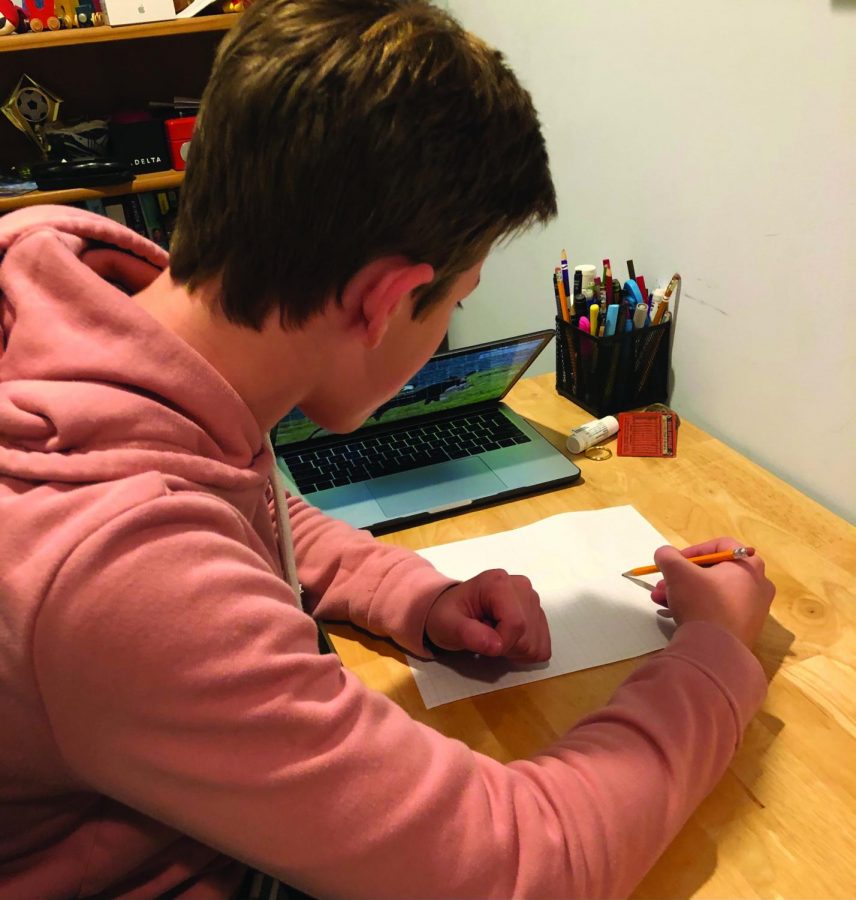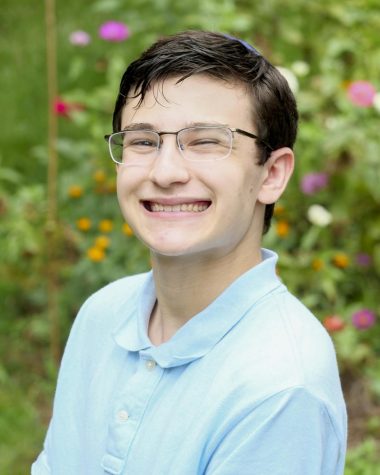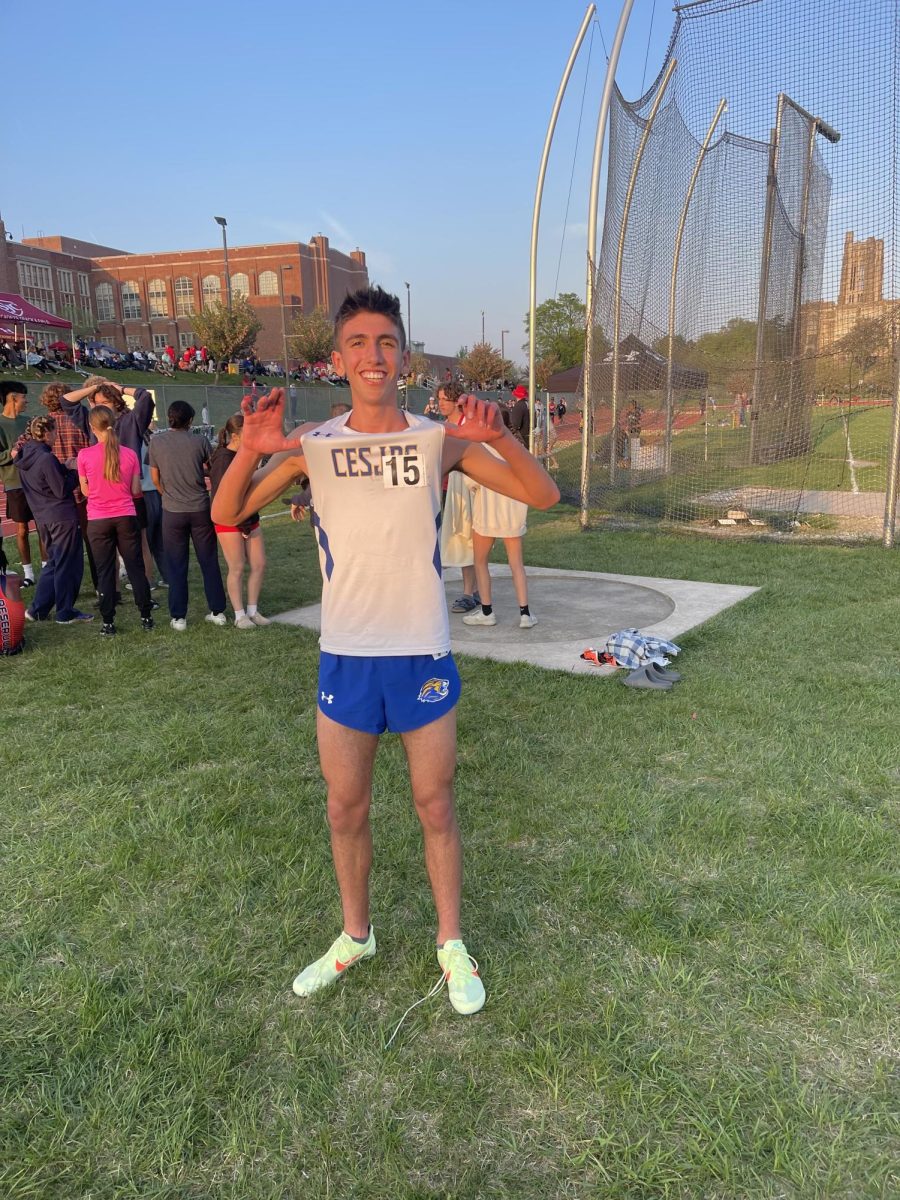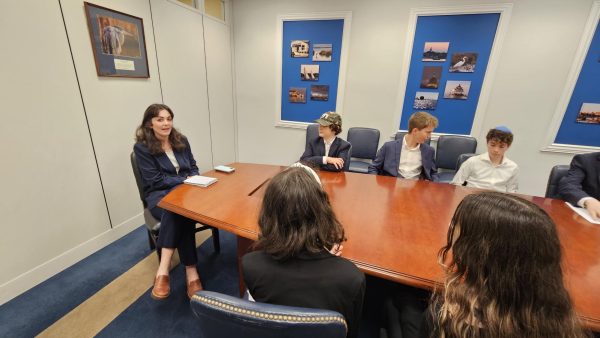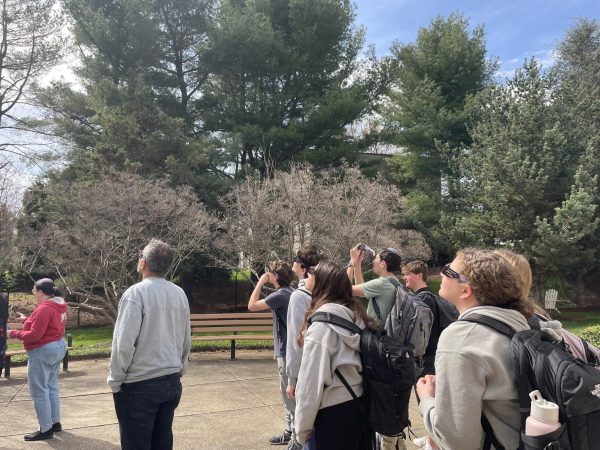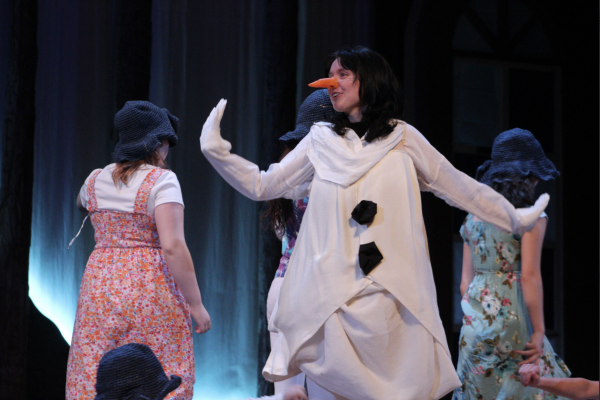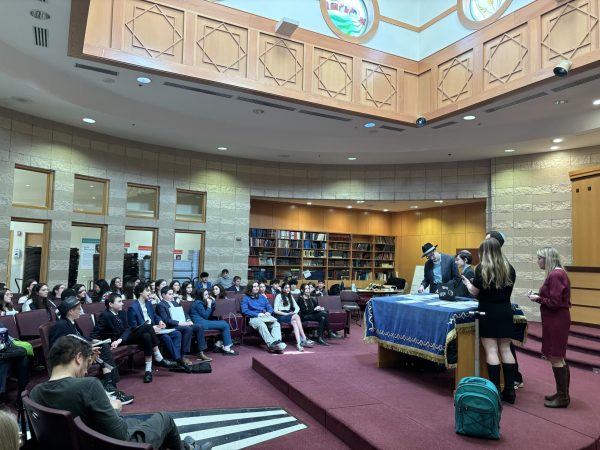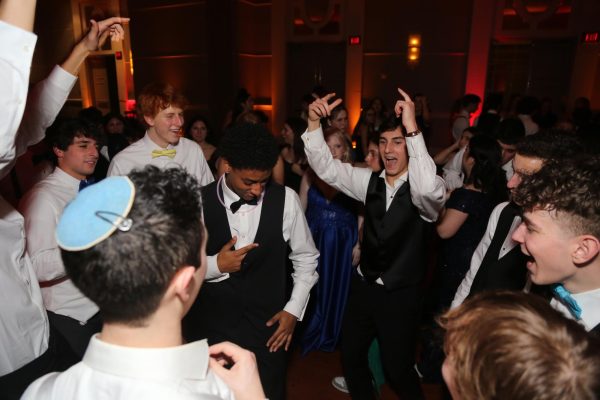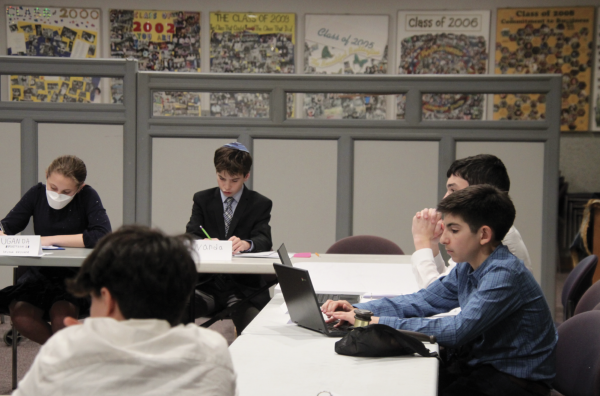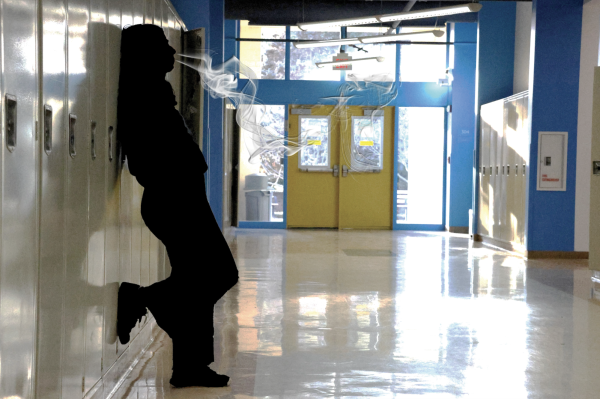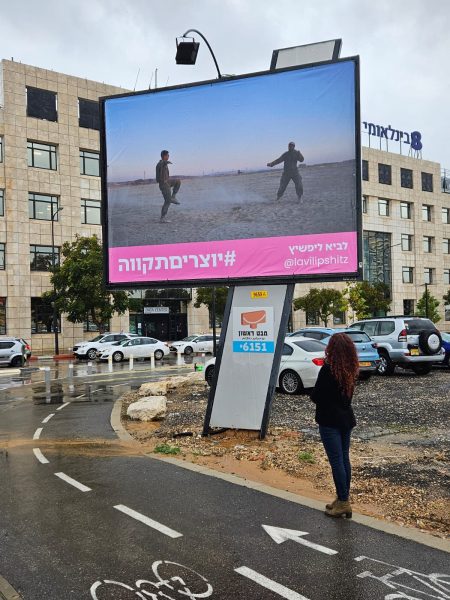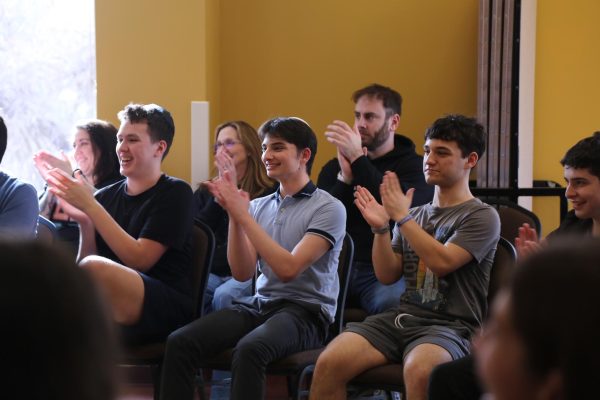Tests: To adapt or maintain? – High school departments reevaluate how to assess students during the pandemic
Sophomore Jonah Gross prepares to take a test.
February 1, 2021
During distance learning, all departments have had to evaluate whether the assessments they typically administer are the best methods of assessing students’ abilities virtually. Some departments have kept with their traditional assessments while others have decided to make various modifications.
According to Math Department Chair Reuben Silberman, the Math department has mostly continued giving tests and quizzes because they believe that they are one of the best methods of gauging students’ understanding of the material.
“When you think about an assessment, you are trying to make sure students have mastered certain skills and … in math … the skills and the content are sort of the same thing usually, so the way you demonstrate you know math is to do math,” Silberman said.
However, this is not the case for all courses. The History department, for one, has completely removed formal exams during the pandemic as they believe it is more important to emphasize skills over content memorization and regurgitation.
“We are not doing traditional tests in distance learning,” History Department Chair Mark Buckley said. “We’ll reengage in that if the schedule shifts and if we’re ever fully back in the building, or in the context of hybrid we might think about it, but for now we figure we’d rather target writing skills, find ways to reinforce those and deemphasize things like tests and quizzes.”
Other departments, such as the Jewish History department, have taken a more moderate approach. They are still allowing teachers to administer traditional tests and quizzes, according to Jewish History Department Chair Aaron Bregman. However, many are also thinking of alternate methods of assessing their students.
“I think there are several ways to be creative,” Bregman said. “And I think we have, to a large extent, tried to utilize all the different assets the school provides us both in house, something like the Schoology assessment, and then within our own creative approach.”
Similarly, science teachers have still been giving traditional exams, but many of them have thought about various ways in which the assessments can be modified to emphasize skills that can be practiced virtually, along with assignments that increase social interaction among peers.
“I wouldn’t normally do group assessments,” Science Department Chair Kimberly Agzigian said. “But I’ve been doing them. I’ve been giving students more group projects, [and] I’ve been putting an emphasis on presentation skills because public speaking is a very important skill and one that we can practice over Zoom very successfully.”
Despite the modifications that teachers have made, sophomore Brooke Cohen still feels that barriers in communication between students and teachers has made it more difficult to take tests virtually.
“[For virtual testing], you seem … so disconnected and it’s as if an emotionless robot is giving you the assessment. You feel a lot less secure within these environments,” Cohen said.
Even though student stress might have increased during this time and it is easier to be dishonest while learning from home, the number of academic dishonesty cases has been relatively consistent with prior years.
“We aren’t seeing [more cases of academic dishonesty],” Dean of Academics Aileen Goldstein said. “Which in some ways is a beautiful thing to see because sometimes in this environment you could imagine that it might be easier to do that, [especially as] there’s no teacher staring over as you are doing a lot of this work in the way that there might be in classroom.”
Whenever on-campus learning returns full-time, many departments are in agreement that their teaching style and approach to assessments will incorporate some of their old methods as well as their newly-devised ones.
“Being in distance learning has forced us to evaluate what we do in a very critical way,” Buckley said. “So, I feel there will definitely be changes that will stick, … I think some sort of hybrid, to use that word of what came before and what came afterward and ultimately something that is really beneficial for our students.”
Similarly, Agzigian said that she will evaluate her assessments based upon student success.
“I’m going to analyze each assessment as I always do … to assess student learning outcomes,” Agzigian said. “If I think the outcomes were better, I’m going to keep it, and if I think the outcomes were not what I have hoped, I will try something different. It might mean returning to something I’ve done before; it might be finding something different to do.”


